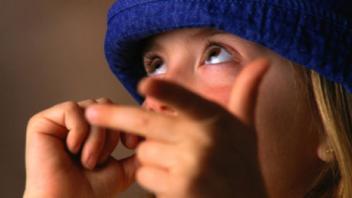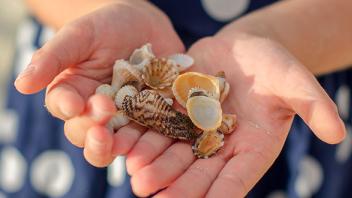Literacy in the sciences tip sheets
Many of the skills that are critical for growing strong readers and writers are also core skills in the study of science and math. Predicting, understanding cause and effect, understanding sequence, acquiring a rich vocabulary, building background knowledge, and developing the ability to read and write informational text are some of the skills we’re looking at in the Literacy in the Sciences series. These easy-to-read two-page tip sheets are written especially for parents and include activities and books to extend your child’s learning.
Our literacy in the sciences tip sheets are available in English and Spanish!
Each tip sheet includes simple activities you can do with your child to build literacy and beginning science skills. Each tip sheet also includes a set of recommended picture books to extend the learning. These tip sheets are part of our Growing Readers parent newsletter series. Subscribe to Growing Readers and get the latest edition delivered right to your inbox.
Browse the tip sheets
STEM Literacy
Outdoor Explorations
STEM Literacy
Steps in the Scientific Process
STEM Literacy
STEM Tools at Home
STEM Literacy
Making Predictions
STEM Literacy
Measure Up!
STEM Literacy
Recording Observations: Journals and Field Notes
STEM Literacy
Recording Observations: Capturing and Sharing Images
STEM Literacy
Patterns and Categorizing
STEM Literacy
Teaching Sequence
STEM Literacy
Cause and Effect
Comprehension
Making Inferences and Drawing Conclusions
STEM Literacy
Creating Bar Graphs
STEM Literacy
Share What You Discover! Publishing Your Work
Background Knowledge
How to Read Nonfiction Text
Vocabulary
The Vocabulary of Science
Common Core Standards
Developing Research and Information Literacy
STEM Literacy
Think Like an Inventor
STEM Literacy
Science vs. Science Fiction
Great science and math books for kids
There are so many well-researched, beautifully designed, and readable science books for young children. And kids love nonfiction — they enjoy looking at every detail in the photographs, reading the captions, and trying to puzzle out the charts, diagrams, and timelines. There are also many quality fiction books with a math or science theme that can provide the perfect doorway for getting kids interested in the world around them.
Browse our booklists
Themed Booklist
Count, Think, and Play with Math
Themed Booklist
How Things Work
Themed Booklist
Take Flight!
Themed Booklist
Secrets of Science
Themed Booklist
See the Sea!
Themed Booklist
Ten Books About Space
Themed Booklist
More Animals All Around
Themed Booklist
Bugs, Birds, and Animals
Themed Booklist
Dinosaurs Rule!
Find more books!
Take a look at the books from our Science and Math booklists and our Creatures booklists. You can also use our Book Finder tool to search for more science-themed fiction and nonfiction books. You can filter by age, genre, format, and topic. Book Finder also makes it easy to discover diverse titles. Browse Book Finder
More science-themed resources from Reading Rockets
Other recommended web resources
Science-themed children’s books
- Outstanding Science Trade Books for Students K–12
- NCTE Orbis Pictus Award for Outstanding Nonfiction for Children
- Teach with Picture Books
- Growing with Science: Science Books
Science-themed websites for kids
PBS Kids science programs and activities
Nature Cat (Ages 3-8)
With the help of his animal friends, Nature Cat embarks on action-packed adventures that include exciting missions full of nature investigation.
Peg + Cat (Ages 3-5)
An animated math-based series that follows Peg and her sidekick Cat as they embark on adventures, solve problems together, and learn foundational math concepts and skills.
The Cat in the Hat Knows a Lot About That (Ages 4-5)
In each program, the Cat in the Hat and his friends Sally and Nick go on a science adventure such as shrinking to bee-size to explore a hive and discover how honey is made; flying with birds to discover how and why they migrate; or diving inside flowers to find out more about the animals that depend on them to live.
Dinosaur Train (Ages 4-5)
This animated series embraces and celebrates the fascination that preschoolers have with both dinosaurs and trains, while encouraging basic scientific thinking skills as children learn about life science, natural history and paleontology. Along with the animated stories, there are short live-action segments hosted by a paleontologist.
Sid the Science Kid (Ages 4-5)
This animated show uses comedy to promote exploration, discovery, and science readiness among preschoolers, and taps into children’s natural curiosity about science in everyday life. The energetic and inquisitive Sid starts each episode with a new question like “why are my shoes shrinking?” or “why do bananas get mushy?”
Plum Landing (Ages 6-9)
In this animated series, meet Plum, a video game designer from the desolate Planet Blorb, who longs to experience nature. The Plum Landing curriculum is aligned with the Next Generation Science Standards and is designed to give kids an undderstanding of the science underlying healty ecosystems and sustainability.
WildKratts (Ages 6-8)
Chris and Martin Kratt encounter incredible wild animals, combining science education with fun and adventure, while traveling to animal habitats around the globe. The program can help strengthen basic skills of observation and investigation that children will use increasingly as they continue their study of science.
Cyberchase (Ages 8-12)
Designed for kids ages 8 to 12, the program uses mystery, humor, and action to deliver positive messages about math by teaching concepts in a fun, understandable way. From tackling time in ancient Egyptian tombs to cracking codes in creepy caves, kids learn that math is everywhere and fun to use! A live-action segment shows kids how math can help solve life’s crazy problems in the real world.
SciGirls (Ages 8-12)
SciGirls is designed to spark a girl’s curiosity in science, technology, engineering, and math (STEM). The show is all about hands-on science inquiry. Viewers learn the scientific process, work collaboratively to investigate meaningful questions, and see how STEM helps people solve problems, achieve goals, and help others.





























